The well-known Abkhaz ethnologist, veteran of the Patriotic War of the people of Abkhazia, a member of the Supreme Council of the World Abaza Congress, Marina Bartsyts, turns 55.
Said Bargandzhia
A member of the Supreme Council of the WAC, a well-known Abkhaz ethnologist, scholar, public figure and PWPA veteran Marina Bartsyts is 55. Only 55 years old - but like an entire era on the scale of one person: war and peace, happiness and sorrow, victories and everyday life ...
Lesson of modesty
When you start to work on a new essay, you meet a new hero - first in absentia, from other interviews, articles, reviews of loved ones and all the materials that you can find, and then personally - it is always both interesting and exciting. You sort out questions in your head, delve into the well-known circumstances of a person’s life and try to understand him to some extent, imagine a personal acquaintance, and, as a rule, still not knowing your future interlocutor, imbue with respect and sympathy for him.
I’m dialing the phone number of Marina Bartsyts. While the phone is beeping, I’m turning the words of greeting over in my mind. Marina answers almost immediately, we greet each other and get acquainted. I talk about the purpose of my call, and we do not talk too long. I propose a meeting - because it’s best to write about the heroine of the material devoted to her if you meet and talk separately, in a calm atmosphere ...
About the heroine of the article! Or simply - about the heroin: not every woman is a PWPA veteran and an outstanding scholar. I don’t say this out loud, but just think to myself, while she ... politely refuses, referring to being “extremely busy” and family circumstances.
Of course, it is understandable: it is difficult even to physically cope with such a volume of duties and deeds. And yet - have I really miscalculated, having blurted out on the fly, that, according to the editorial board’s idea, a whole essay will be devoted to her? Didn’t I take into account the fact that she could refuse a large interview from ordinary - and extremely rare nowadays modesty?
“I am going to live a long time, and there are many birthdays ahead, so we still have time to meet ...”, Marina Mkanovna smiles at the other end of the line.
And I, feeling that this time I must retreat in my journalistic perseverance, firmly decide to myself that I am still going to prepare an essay about her for her anniversary. And I think: such a direct, courageous and extraordinary person must have friends who will be able to talk about the most important thing.
I was right. For many years, Marina Bartsyts has been friends with another outstanding Abkhaz, Tali Dzhapua, who was awarded the highest award “Hero of Abkhazia”. I turned to her for a story about Marina.
Fragile and strong woman
But before I share Tali’s stories about Marina, I’ll give you some biographical notes.
Marina Bartsyts was born in the village of Blabyrkhua of the Gudauta district of Abkhazia on November 16, 1964. Her father, Mkan Bartsyts, is from a glorious family, all of whose ancestors were decent and respected people. Mkan himself was a peasant and lived by his labor. Mother, Venera Tskua, comes from the village of Zvandripsh. Mkan and Venera raised four children: two sons and two daughters. All four were given higher education. Marina is the youngest in the family. She studied at the Sukhum boarding school named after Kondrat Dzidzariya. She studied well, and most of all she liked the humanities. After school, Marina continued her studies at the Department of History at Rostov State University.
After graduating from Rostov State University, she entered graduate school at the Institute of Ethnology in Moscow.
“In the summer we accompanied her to school. And there, in Moscow, in the hostel, she heard that the war had begun in her homeland,” says Tali Dzhapua.
A close friend during the Patriotic War of the people of Abkhazia took an interview from Marina Bartsyts in which she asked: what, after all, was the reason that a very young girl and future ethnologist, having left her studies, went to war?
“And then, she answered me: “I study the traditional culture of my people. If my people vanish, then these studies will lose their meaning for me. Today, when my people are on the verge of extermination, my duty is to be with my compatriots,” Tali Dzhapua cites a fragment of that interview.
In those days, if you were outside Abkhazia, it was difficult to get there. Gagra was in the hands of the Georgian invaders. A very young, slim and fragile girl, Marina managed to ensure that she was brought by a Russian military plane to Bambora (a village in the Gudauta district - ed.). Having arrived in Abkhazia, she worked for some time as a secretary in the reception room of the First President of Abkhazia Vladislav Ardzinba. In mid-October, she came to Eshera and stayed there to save the wounded, and worked as a nurse.
“25 years have passed already and only the last two years I began to realize that I didn’t do very well. I left [from Gudauta] to the front without even saying goodbye. The fact is that in Gudauta there will always be a person who will replace me. And at the forefront there were always not enough people. I thought, even if I won’t fall on a grenade, I’ll close at least one meter with my body. But now I understand that it was necessary to say goodbye then,” Marina Bartsyts shared in one of her interviews.
All those months, Marina was hiding from her parents that she was at the front: they thought that their daughter worked in Gudauta. Marina also collected a photo archive. After the war, together with Maya Amichba, she held a photo exhibition in the Batal Dzhopua’s Gallery.
Tali Dzhapua, characterizing Marina, says that her friend has very rare qualities that distinguish her from everyone else. For example, in friendship she is more faithful than a sister, Tali said.
“She is very open and loves people. She puts the interests of others above her own. The same was in the war. The main thing for her was to take care of others, not sparing herself, from her last ounce of strength. And she never complained. I know this firsthand, I saw it all with my own eyes, felt it for over a year, when we lived in blood and tears,” says Tali Dzhapua.
One of the participants in the hostilities, Mirod Gozhba, during the summer offensive saw Marina bandaging the wounded. Then, with some even surprise, he told Tali Dzhapua in an interview with what dexterity and knowledge of the matter, quick and accurate movements, just like a doctor, Marina did her job.
This was not only in war.
“Immediately after the war, in November 1993, I had a very serious accident,” recalls Dzhapua. - I spent about a year in a hospital in Moscow. And here Marina helped me a lot. Almost every day she was there, cheering me up. And the fact that I was able to fully recover from those injuries, no doubt, is a great merit of Marina. Few are capable of such acts.”
She approaches any business in life just as responsibly as any duty to people. And one of her favorite things was and remains photography.
“From the very first day I saw Marina, wherever she was, she always carried a camera on her shoulder. Today, probably, there is no other person in Abkhazia with such a rich photo archive as hers. I consider her pictures of our brave fighters, taken in the war as the most invaluable. This is our history. I hope that one day all these works will come out in a large quality edition and become the property of the people,” says Tali Dzhapua.
War-hardened friendship
The friendship between Tali and Marina began in 1989 in the following circumstances.
“I came to work at the Gulia Abkhaz Institute for Humanitarian Studies, - Tali recalls further. - Marina then worked as a secretary for the director of the institute, Vladislav Grigoryevich Ardzinba. She was very young. And she was a very fragile and skinny girl. But she always carried enormous energy. Marina was a historian, but very fond of poetry. She knew Taif Adzhba’s poems by heart and read Tsvetaeva and Akhmatova ... ”
Marina's knowledge of the masterpieces of world poetry is amazing, continues her friend. They met at the institute.
“We were brought together, first of all, by general anxiety for the fate of the Motherland, concern about the plight of the Abkhaz people. We joined those who fought to change this situation. The Abkhaz Institute and “Aidgylara” united us all (the “Aidgylara” People's Forum was created in 1988, and its main goal was the struggle of the people of Abkhazia for the restoration of national statehood - ed.) and then we stood next to the fighting guys,” - recalls Tali Dzhapua.
At that time, scholars did not sit all day in the walls of the institute as today. Scholars work mostly at home, Dzhapua explains.
“But I didn’t have a separate office in my house where I could work in solitude, and therefore I came to work every day in the institute. The scientific secretary of the Institute, Emma Kilba, may she rest in peace , and Marina Bartsyts were certainly at work every day. At that time, we all became close. After all, there were many experiences. Our social situation was very turbulent, and this also united us. We had many grandiose plans on what and how to do, but the war prevented everything. This year is already 30 years since we became friends with Marina. I can say that our friendship is hardened by the war,” says Tali Dzhapua.
The main thing is humanity
According to her comrade-in-arms, humanity is the most important quality of Marina Bartsyts.
“In the 2000s, Marina Bartsyts was elected a deputy of the National Assembly of the Republic of Abkhazia (Bartsyts was a deputy of the National Assembly of the third convocation in 2002-2007 - ed.). Her work as an elected representative and the way she treated her voters, up to today, I consider to be the best example of what a deputy should be like. Knowing thoroughly the history of our country, thinking about its future, she, of course, is the glorious daughter of her people, ready to devote her whole life to it without hesitation,” said Tali Dzhapua.
From personal preferences and hobbies of Marina, in addition to photography, a friend notes a love of the mountains. It is “like a disease” for Marina, adds her friend.
“I think not a single year has passed that she did not go to the mountains. This love for the mountains was instilled in her by her father from childhood. And since then, she carries this attachment. Marina knows mountain customs well, studies them. She is hurt and upset that many of these customs are lost today. As if I see her now, going straight during the war, not taking a step off for a second, and not looking back when we went up to different heights. We were already exhausted from fatigue, and she kept moving forward stubbornly and easily,” Tali Dzhapua, the Hero of Abkhazia, talks about the character and fortitude of her friend.
Among relatives and at work
Mentioning her “being extremely busy” and family circumstances in a conversation with me, Marina Bartsyts spoke, as usually, directly - and as it is.
According to Tali Shalikoevna, in recent years, due to her mother’s illness, Marina spends several days a week in the village of Blabyrkhua, and on the other days she gives lectures at the university and then “you will not see her either.”
“However, no less than once a week, we definitely see each other. For me, she is among the most dear ones. Moreover, when some important civil issues arise, I want to know what her opinion is, what she thinks about it. It is very important for me. Therefore, we are always in touch with her,” the veteran of the war shares.
Marina Bartsyts today continues to deal with ethnology and has long established herself as a reputable Abkhaz scholar.
“Today, I consider her main activity teaching at the ASU. I think that Marina Bartsyts's lectures have a strong influence on young people in their attitude to the traditional culture of their people, in the formation of national self-identity,” the friend shares.
Tali Dzhapua partly reassured me about a failed meeting with Bartsyts: Marina Mkanovna does not like to celebrate her birthday at all. And how does she celebrate it? “Sometimes she doesn’t celebrate it at all.”
“It is her nature not to celebrate this day at all. But I think her friends and colleagues will not miss this event,” said Dzhapua.
Understatement, of course, remains in this short story about the life of one strong Abkhaz woman, because there are no innermost thoughts of the heroine herself. Perhaps she will read this story and another time will agree to meet, as she promised? I reserve the right to try to arrange this interview in the future. In the meantime, together with our colleagues in the Congress, we cordially congratulate the member of the SC WAC on her anniversary. We wish you strength, good health, prosperity and happiness, dear Marina Mkanovna!
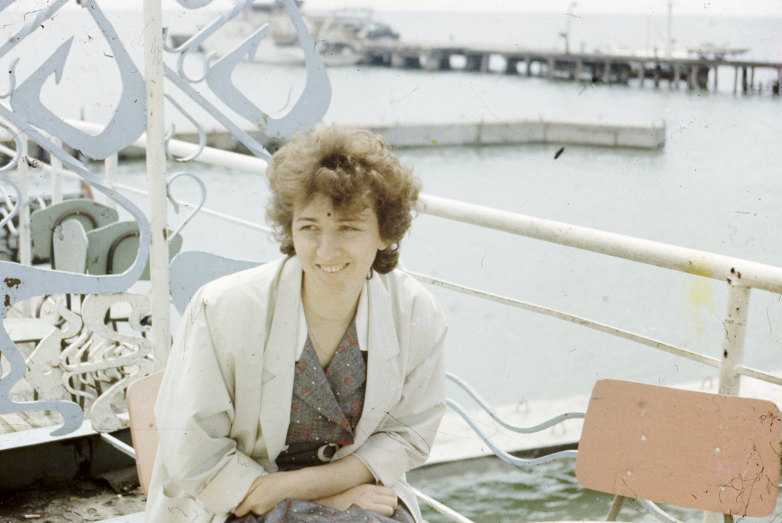
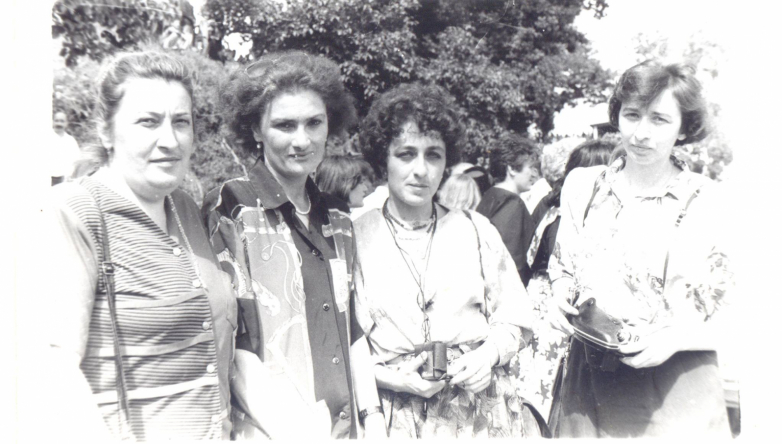
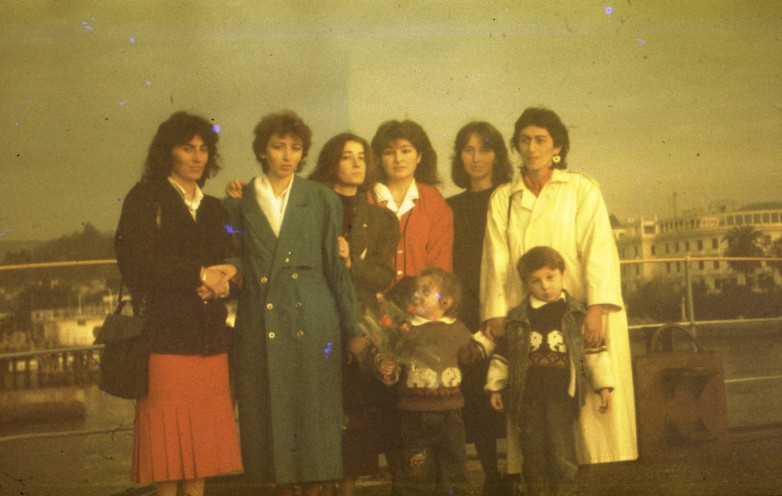
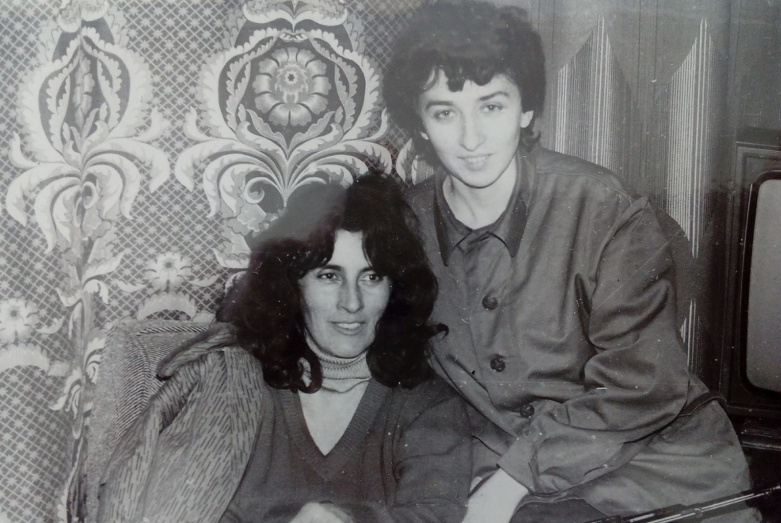
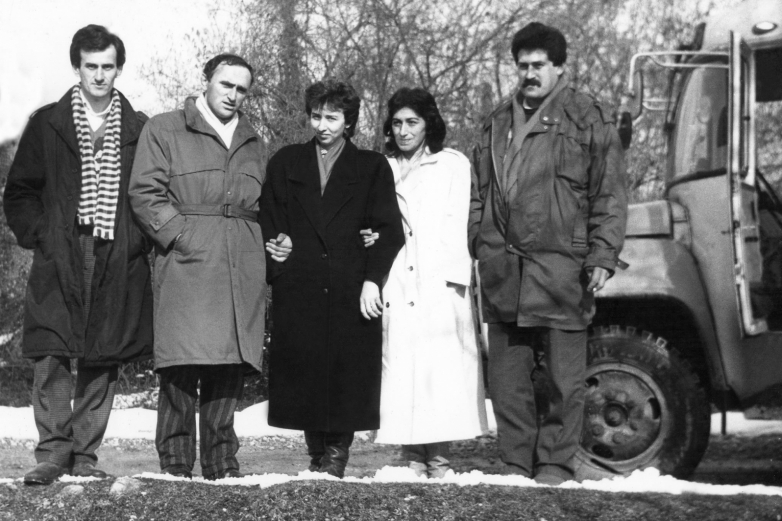
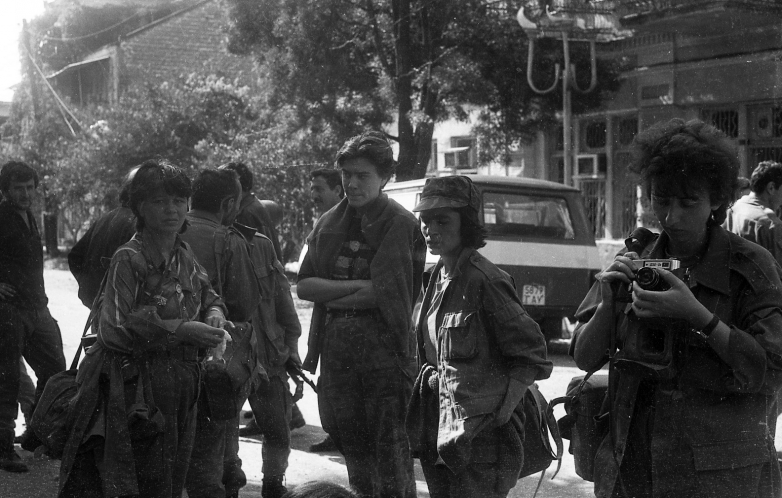
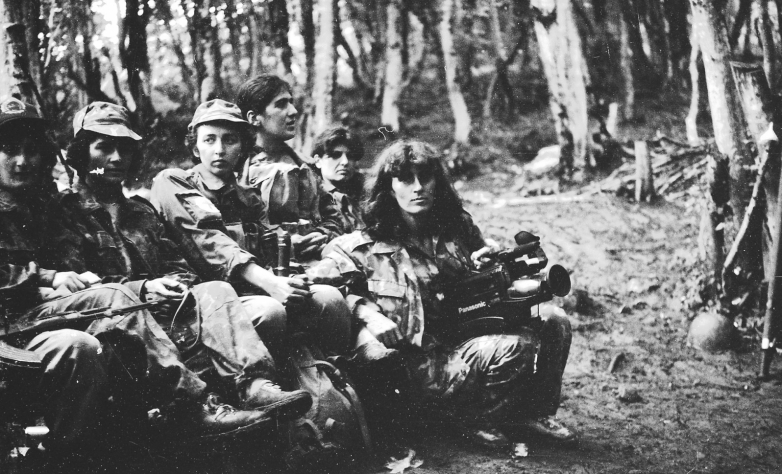
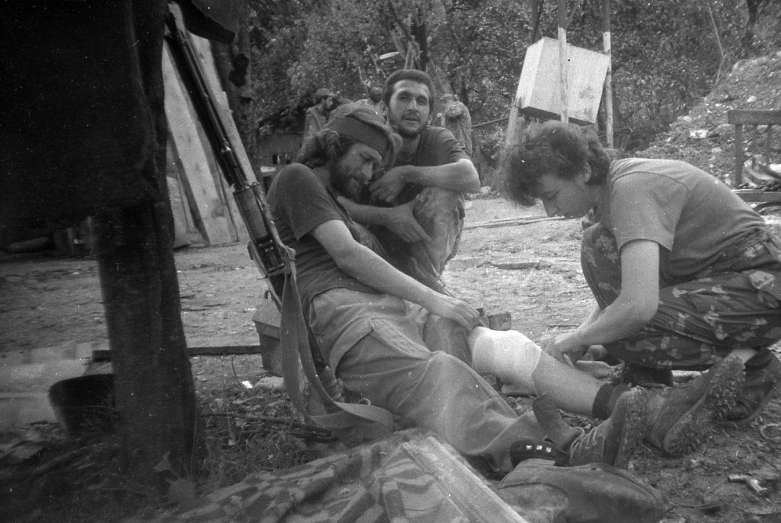
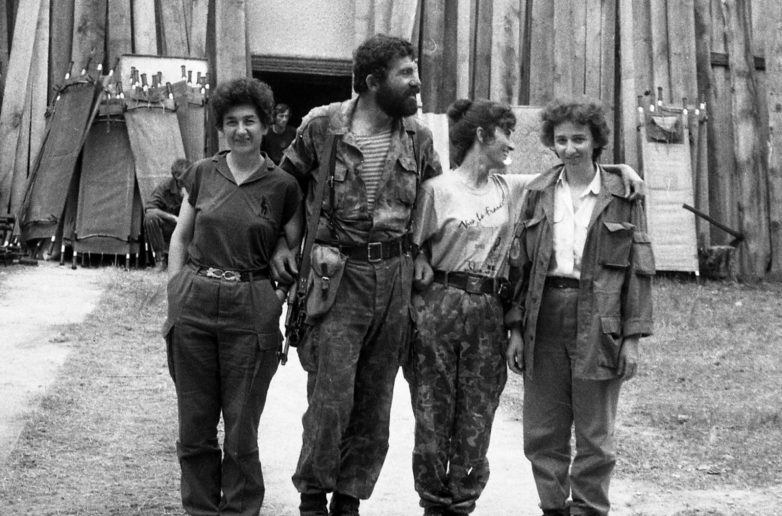
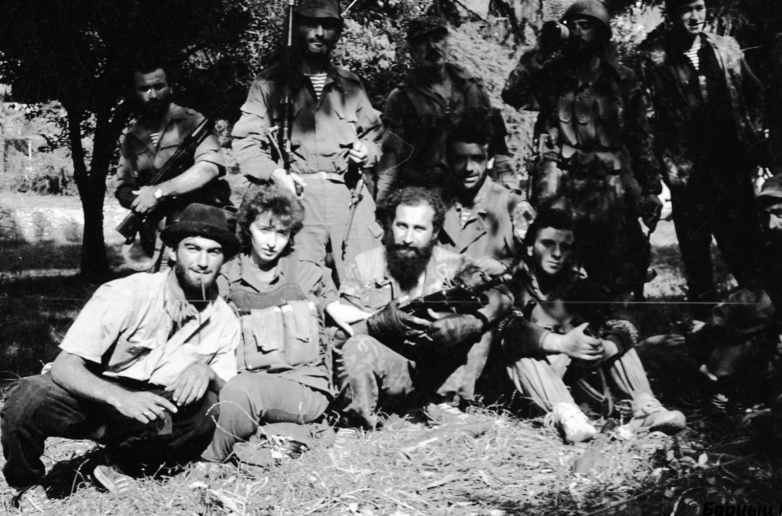
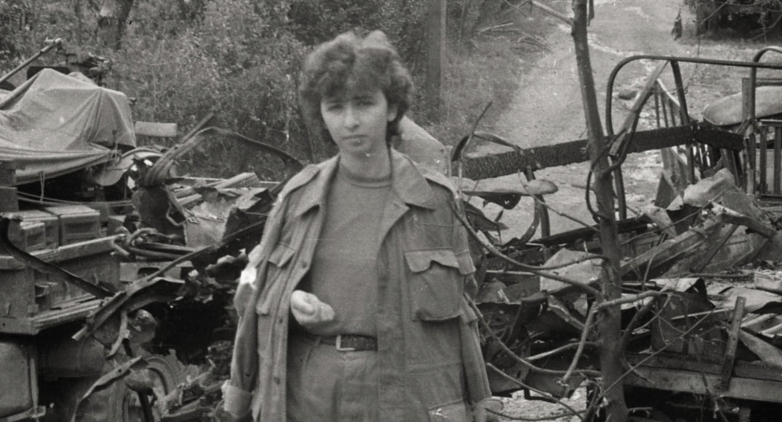
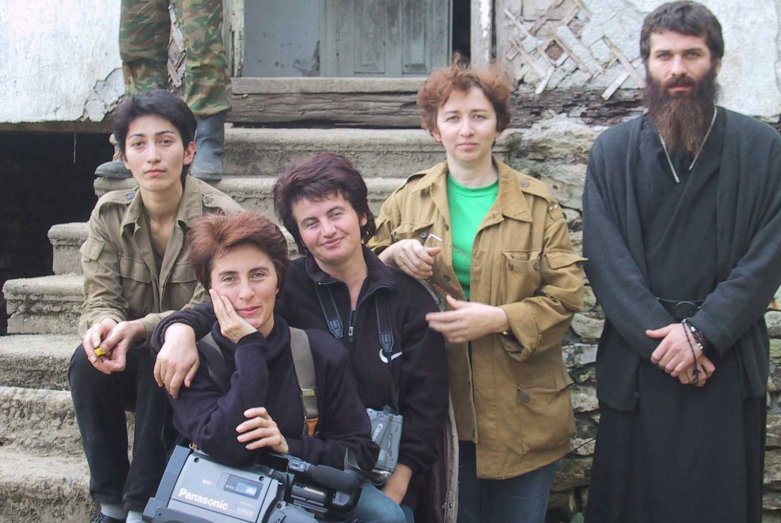
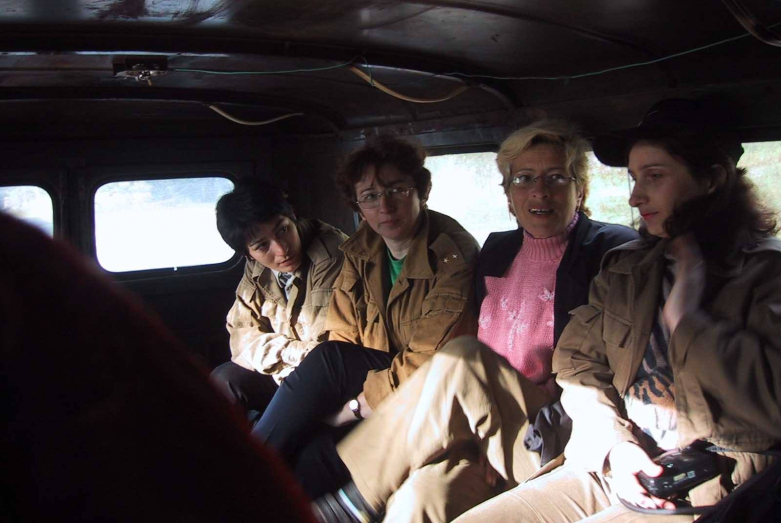
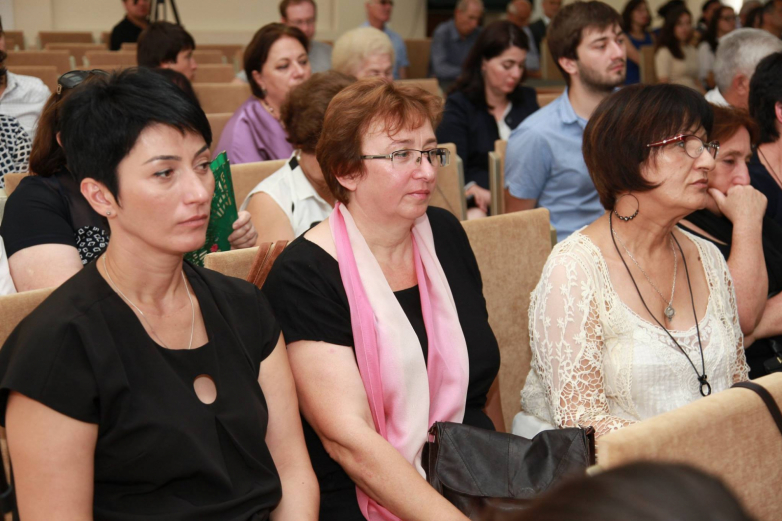
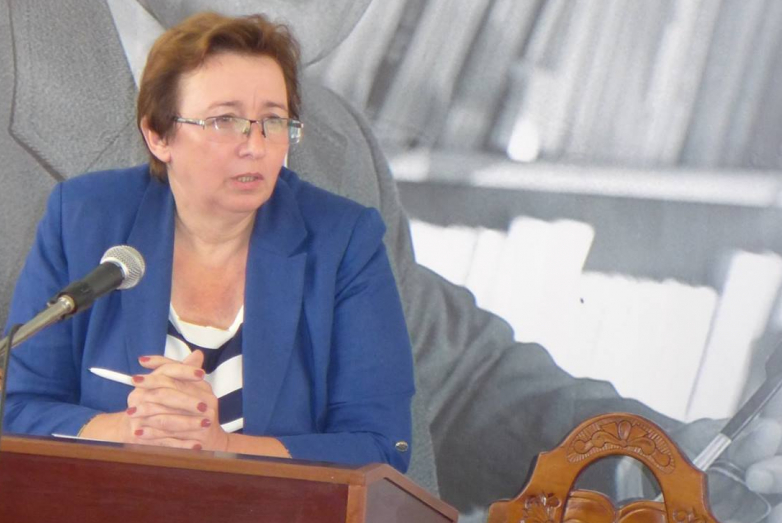
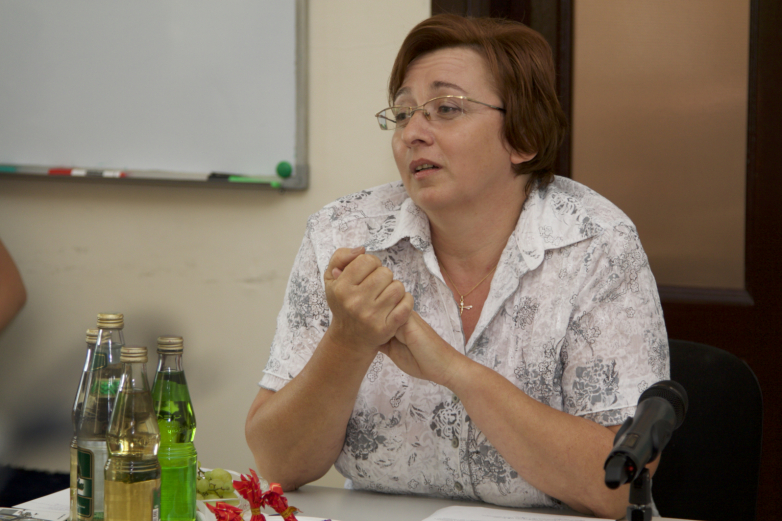
to login or register.